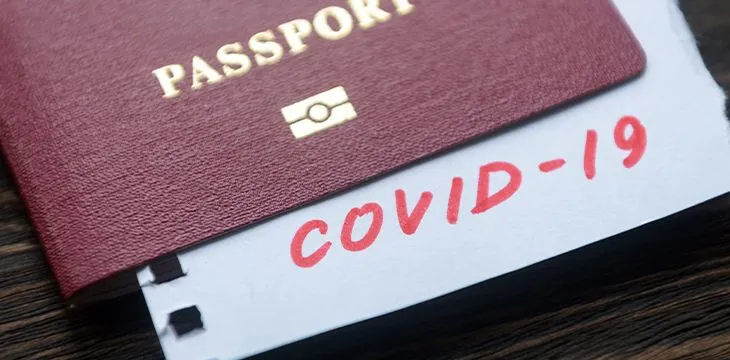|
Getting your Trinity Audio player ready...
|
The International Air Transport Association (IATA) has announced a digital COVID passport powered by blockchain, designed to streamline the process of international travel during the pandemic.
Created as an alternative to quarantines for international travel, the Travel Pass system allows for digital health screening without invading the privacy of individual passengers. User data is stored securely on the blockchain, and can be shared with border authorities and airlines as required without running through a third-party.
#IATATravelPass🤳 is an important tool in the partnership between govts & industry. ✈️
It will help govts, #airlines & travelers manage testing or vaccine requirements with accurate info, secure identification & verified data. 🔒
➡️ https://t.co/7UFGxBULIh pic.twitter.com/XAAUI7ozT2
— IATA (@IATA) January 27, 2021
The data is notionally unhackable because it is not stored centrally. Data can then be shared through the Travel Pass to required parties directly, via the blockchain platform, for more efficient travel outcomes.
The Travel Pass has been developed to respond to the growing calls for worldwide quarantine of international travelers, ostensibly to reduce the importation of cases of the novel coronavirus. Rather than submit to a period of several weeks’ quarantine, arrivals using the Travel Pass system would be able to avoid the requirement by proving their health status.
Alan Murray Hayden, who led the team developing the Travel Pass at IATA, described the technology as “probably one of the first-ever examples of blockchain technology being implemented in a way that benefits people.”
Test and vaccine information is written to the blockchain and accessed via a Travel Pass mobile app. The scheme is currently being trialed by Etihad Airways on flights from Abu Dhabi. Pending the outcome of the trials, the airline intends a wider rollout later in the year.
While no doubt controversial, the technology underlines what is already possible with blockchain tech for recording, storing and proving verification and identity credentials.
With growing political pressure for greater restrictions on international travel, the Travel Pass scheme could offer an alternative for those still travelling through the pandemic.
See also: CoinGeek Live presentation, Clean Data: Clinical Research Integrity and Data Hygiene Using Bitcoin SV

 07-09-2025
07-09-2025 





